X65M straight seam welded steel pipe is a high-strength pipeline steel pipe widely used in long-distance pipeline projects such as oil and natural gas. It has excellent mechanical properties, welding properties, and corrosion resistance. With the continuous growth of global energy demand, X65M straight seam steel pipe has broad application prospects in the domestic and foreign markets and has become one of the important materials in the field of pipeline construction.
First, the basic characteristics of X65M straight seam welded steel pipe
X65M straight seam welded steel pipe is a high-strength pipeline steel produced in accordance with API 5L standard. Its minimum yield strength is 450MPa (65ksi). It belongs to the steel produced by micro-alloying controlled rolling and controlled cooling (TMCP) process. The carbon content in its chemical composition is controlled at a low level (usually ≤0.12%), and the content of harmful elements such as sulfur and phosphorus is extremely low (≤0.005% and ≤0.020% respectively), which significantly improves the steel pipe's resistance to hydrogen-induced cracking (HIC) and sulfide stress corrosion cracking (SSCC).
Second, production process and technical points
Modern X65M straight seam welded steel pipes are mainly produced by the JCOE forming process or UOE forming process. Taking a large steel pipe manufacturing company as an example, its production line is equipped with pre-welding machines from Germany's SMS Meer and multi-wire submerged arc welding equipment from Lincoln Electric in the United States, which can produce a series of products with a diameter of 406-1422mm and a wall thickness of 6-40mm. The key production processes include:
- Plate edge processing: The edge of the steel plate is precisely processed by a milling machine to ensure a groove angle of 30°±2° and a blunt edge height of 1.5±0.5mm, creating ideal conditions for subsequent welding.
- Pre-bending forming: The edge of the steel plate is pre-bent by a seven-roll pre-bending machine to eliminate the "straight edge effect" during subsequent JCO forming. Actual measured data from a factory show that the optimized pre-bending radius can reduce residual stress by more than 40%.
- Multi-step stamping forming: A computer-controlled hydraulic press is used for progressive JCO forming, which usually requires 7-9 passes to complete the entire forming process. The newly introduced 6000-ton hydraulic press has a positioning accuracy of ±0.1mm, and the forming efficiency is increased by 30%.
- Diameter expansion treatment: Mechanical or hydraulic diameter expansion technology is applied. The actual measurement of a certain project shows that after a 12% diameter expansion rate, the roundness error of the steel pipe can be controlled within 0.6%D, which significantly improves the accuracy of the pipeline assembly.
Third, quality control and testing technology
To ensure the reliability of X65M straight seam welded steel pipe, a strict quality control system is implemented in the manufacturing process:
1. Raw material inspection: A direct reading spectrometer (OES) is used for composition analysis, and a Zeiss metallographic microscope is equipped for inclusion rating. A batch inspection report shows that the actual sulfur content is controlled at 0.0012%-0.0028%, which is far below the standard requirements.
2. Online monitoring system: The ultrasonic thickness gauge of Thermo Electric Company of the United States is installed to monitor the wall thickness deviation in real-time, and the system sensitivity reaches 0.05mm. Statistics show that the wall thickness qualification rate increased to 99.97% after the application of this system.
3. Nondestructive testing: Combined application of ultrasonic flaw detection (UT) and eddy current flaw detection (ET), the newly introduced phased array ultrasonic testing system (PAUT) can identify defects with an equivalent diameter of 0.3mm, and the detection speed reaches 2.5m/min.
Fourth, typical cases of engineering application
In the Sino-Russian East Line Natural Gas Pipeline Project, X65M straight seam welded steel pipes have created many application records. The project uses 1422mm diameter and 21.4mm wall thickness steel pipes, with a single pipe weight of 7.8 tons and a design pressure of 12MPa. It is particularly noteworthy that: low temperature adaptability: at an ambient temperature of -40℃, the Charpy impact energy of the steel pipe remains at 186-243J, which fully meets the use requirements of Russia's extremely cold regions. The third-party test report shows that the shear area rate of DWTT at -45℃ reaches 98%.
Fifth, market status and development trends
According to statistics from the China Iron and Steel Association, my country's X65M straight seam welded steel pipe production will exceed 5.8 million tons in 2024, of which exports account for 35%, mainly sold to the Middle East, Central Asia, and Africa. The current industry presents the following development characteristics:
1. Large-scale specifications: The annual growth rate of demand for large-diameter steel pipes above 1422mm is 12%, and a Middle East project has begun to evaluate the feasibility of 1620mm diameter pipes.
2. High strength: The proportion of X70M and above steel-grade products has increased to 28%, but X65M still occupies a mainstream position (about 65% market share) due to its excellent cost-effectiveness.
3. Intelligent manufacturing: Leading companies have deployed 5G+ industrial Internet platforms. A demonstration factory has reduced the defective rate by 40% and energy consumption by 15% through digital twin technology.
Sixth, use and maintenance recommendations
To ensure the long-term safe operation of X65M straight seam welded steel pipes, users are advised to pay attention to the following points:
1. Storage management: The number of steel pipe stacking layers should not exceed 5 layers, and the spacing between supports should not be greater than 1/3 of the pipe length. Experience from a certain project shows that the use of rubber pads can reduce pipe end deformation by 60%.
2. Welding preheating: When the ambient temperature is lower than 5°C, preheating to 80-120°C is required. Practical data show that proper preheating can reduce the incidence of cold cracks from 3.2% to 0.5%.
3. Cathodic protection: It is recommended that the protection potential be maintained at -0.85 to -1.15V (CSE). A submarine pipeline monitoring system shows that the optimized protection scheme reduces the corrosion rate to 0.02mm/a.
4. Regular inspection: It is recommended to conduct an internal inspection (ILI) every 5 years. The latest electromagnetic ultrasonic testing technology (EMAT) can simultaneously evaluate pipe body defects and coating conditions, with an inspection accuracy of ±0.3mm.
In summary, as the core material of modern pipeline engineering, the technical level and application scale of X65M straight seam welded steel pipe are still continuously improving. With continuous breakthroughs in new materials and new processes, this type of steel pipe will show excellent performance under more stringent environmental conditions and more complex service conditions, providing a solid guarantee for the construction of global energy infrastructure.
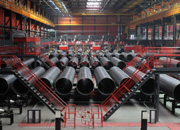 Threeway Steel is known as a professional supplier engaged in manufacturing and distributing a wide range of steel pipe, and our headquarter located the central part of China – Hunan and six associated factories throughout China.
Threeway Steel is known as a professional supplier engaged in manufacturing and distributing a wide range of steel pipe, and our headquarter located the central part of China – Hunan and six associated factories throughout China.
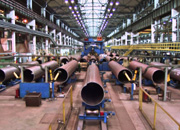 Threeway Steel is known as a professional supplier engaged in designing, manufacturing and distribution of a wide range of steel products with the headquarter located the central part of China – Hunan and six associated factories throughout China.
Threeway Steel is known as a professional supplier engaged in designing, manufacturing and distribution of a wide range of steel products with the headquarter located the central part of China – Hunan and six associated factories throughout China.
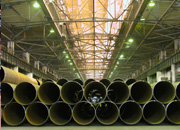 Threeway Steel is known as a professional supplier engaged in designing, manufacturing and distribution of a wide range of steel products with the headquarter located the central part of China – Hunan and six associated factories throughout China.
Threeway Steel is known as a professional supplier engaged in designing, manufacturing and distribution of a wide range of steel products with the headquarter located the central part of China – Hunan and six associated factories throughout China.
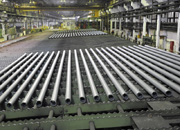 Threeway Steel is known as a professional supplier engaged in designing, manufacturing and distribution of a wide range of steel products with the headquarter located the central part of China – Hunan and six associated factories throughout China.
Threeway Steel is known as a professional supplier engaged in designing, manufacturing and distribution of a wide range of steel products with the headquarter located the central part of China – Hunan and six associated factories throughout China.
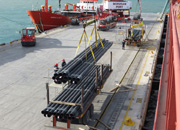 Threeway Steel is known as a professional supplier engaged in designing, manufacturing and distribution of a wide range of steel products with the headquarter located the central part of China – Hunan and six associated factories throughout China.
Threeway Steel is known as a professional supplier engaged in designing, manufacturing and distribution of a wide range of steel products with the headquarter located the central part of China – Hunan and six associated factories throughout China.

